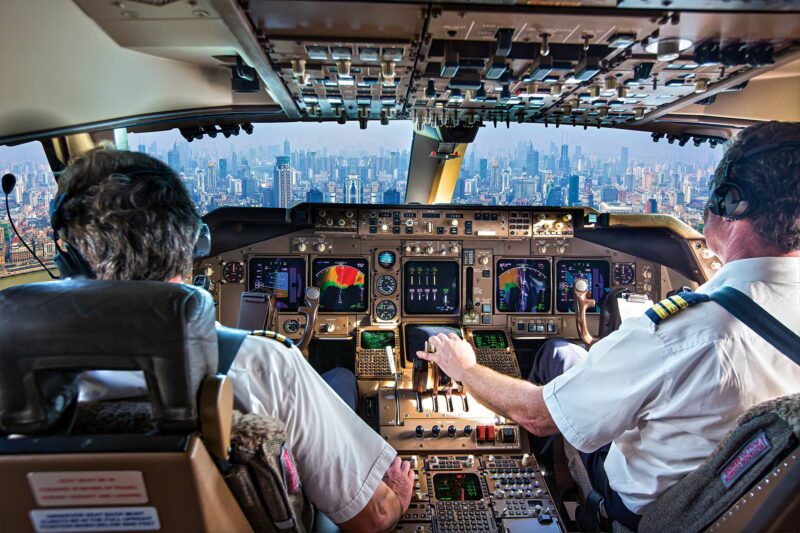World’s largest pilot organizations are calling single pilot ops “A Threat To Safety”

Some of the world’s largest pilot organizations have joined forces in the fight against single pilot operations.
Leaders of some of the world’s largest pilot organizations have united to call on airlines and manufacturers to rethink plans for single pilot operations, claiming that profit is being prioritized over safety. The group plans to take collective action with regulators around the world, including the International Civil Aviation Organization (ICAO).
According to the pilot representatives from the International Federation of Air Line Pilots’ Associations (IFALPA), the European Cockpit Association (ECA), and Air Line Pilots Association (ALPA), single pilot operations would lead to a significant increase in workload for the one pilot. The group claims that “technology, no matter how sophisticated, is not a replacement for pilots on the flight deck,” adding that a pilot is able to adapt in real-time to unexpected situations and acts as a critical backup in the case of system failure.
In a joint statement, the presidents of IFALPA, ECA, and ALPA said,
“Whether you depart from New York, San Francisco, or Atlanta bound for London, Paris, or Tokyo, a crew of at least two qualified, experienced, trained, and rested airline pilots is at the controls on the flight deck of your plane. Every aspect of your flight – the aircraft, its systems, the regulations, and standards that apply to the flight, and the procedures that pilots follow – is deliberately designed for a team working together on the flight deck.”
IFALPA represents more than 150,000 pilots in nearly 100 countries. The organization’s mission is “to promote the highest level of aviation safety worldwide, and to be the global advocate of the piloting profession.” ECA has similar aims, promoting safety among its 40,000 members across Europe. Across the Atlantic, ALPA is the largest pilot union in the world, with over 67,000 members at 39 airlines across the US and Canada.
The proposed objection to single pilot operations is also supported by other groups within the international pilot community, including those aligned with airline alliances, such as the Associations of Star Alliance Pilots, the oneworld Cockpit Crew Coalition, and the SkyTeam Pilots Association.
Over 40 countries, including the UK and Germany, have asked ICAO to help make single pilot operations a safe reality. The European Union Aviation Safety Agency (EASA) is also working with manufacturers to study the regulatory changes required for such procedures and has said that single-pilot flying may begin as early as 2030.
The proposal was not well-received by the pilot community. The president of the Australian & International Pilots Association, Tony Lucas, expressed concerns that a single pilot could quickly be overwhelmed by an emergency situation before anyone has time to reach the flight deck. He went on to say, “the people going down this route aren’t the people who fly jets every day. When things go awry, they go awry fairly quickly.”
Opponents of single pilot flying will likely cite real-life examples of such situations, including Air France flight AF447, which crashed into the Atlantic Ocean en route from Rio de Janeiro to Paris in 2009. Problems were detected while the Captain of the Airbus A330 was resting in the cabin, and by the time he got to the flight deck 90 seconds later, the aircraft had already entered an unrecoverable aerodynamic stall.
That said, single-pilot operations do bring some benefits. Aside from the obvious cost savings linked to recruitment, training, and pilot salaries, being able to spread pilots more thinly across their aircraft would allow airlines to avoid problems caused by recent staff shortages.
Technology is also constantly advancing, with greater remote support from teams on the ground becoming an increasingly likely possibility in the future. In the past, aircraft flew with a flight engineer and navigator also onboard, but as technology advanced, these roles became redundant. simpleflying.com
